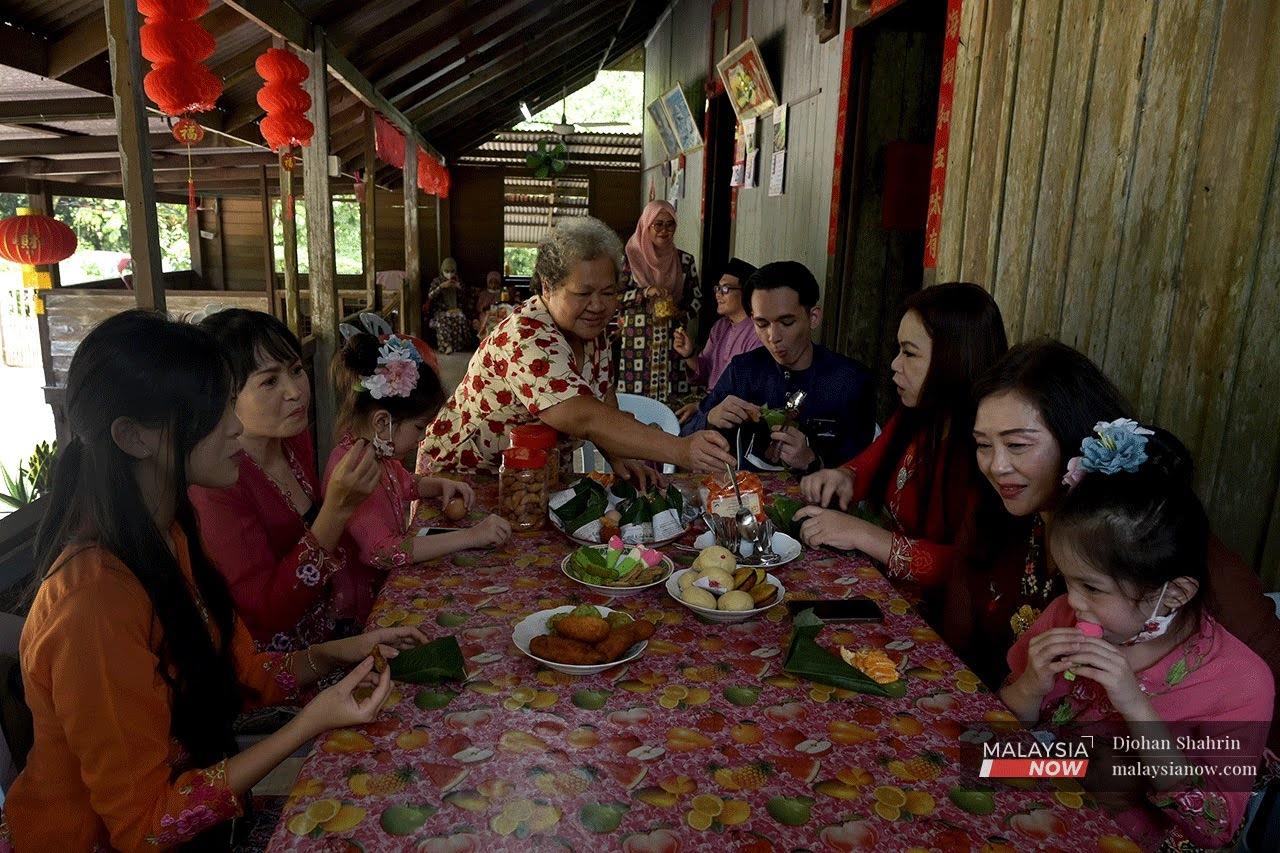In Terengganu, Peranakan Chinese hold to tradition in the face of modernisation
While some have migrated to the city, others continue to celebrate New Year with the traditions they have always observed.
From afar, the simple wooden house built on stilts like the rest of the homes in the area looks like any other Malay house in Kampung Tiruk, Kuala Terengganu.
Visitors who enter the gate are greeted in the porch area while to the right stands a wooden garage and behind the house, a cooking area outfitted with a charcoal stove.
Only the red lanterns hanging from the beams in front of the house and the strips of paper bearing the Chinese characters for good luck and prosperity reveal that the household is not Malay but in fact Peranakan Chinese.
The matriarch of the house is 72-year-old Yee Choo Im who lives there with her son, Chia Soon Thye. Her husband passed away in 2015.

Much of the house is the original structure although additional rooms were built at the back over the years.
In the place of honour at the front of the house is the altar where the family prays. Other rooms hold antique items, lending the air of a museum.
Yee, fondly known as Mek, is the sixth generation of Peranakan Chinese in Terengganu.
Her family has never failed to celebrate Chinese New Year, for which preparations begin far in advance.
Much of the time is spent making a sticky cake known as nian gao or kuih bakul.

“Ten days before the New Year, I start by buying glutinous rice,” Yee told MalaysiaNow in her distinctive Terengganu dialect.
“I grind the ingredients myself and then leave them overnight. The next day, I steam everything for 12 hours.”
Accustomed to working without the conveniences of a modern kitchen, Yee does everything by hand over the charcoal stove at the back of the house.
Her son Chia is one of seven siblings. Speaking to MalaysiaNow, he said his family normally holds their ancestral prayers a day before New Year.
On New Year’s Day itself, they pray once again in the morning before holding a big dinner at night.

There used to be more Peranakan Chinese like them in the area but now, the village is home to only 10 or 15 households compared to 20 several decades ago.
“When the older generation dies, their children sell their wooden houses and give up on life in the village,” he said.
“They move to the city to find work there instead.”
The first generation of Chinese to come to Terengganu from mainland China worked in fields or rubber plantations.
Yee herself, when she was young, worked as a rubber tapper.
Younger Peranakan Chinese who have left the village still recall the old days and traditions with fondness despite following different customs themselves.
Evin Chua now lives in Ladang in Kuala Terengganu but those from her grandfather’s generation are still in Kampung Tiruk.
“The younger generation prefer wearing cheongsams for Chinese New Year,” she said.
“But those in the village still follow the old custom of wearing nyonya kebayas, especially the Peranakan Chinese.”

In Terengganu, where the majority of the population is Malay, much of the culture is entwined with that of the Chinese.
This also means that the Chinese New Year celebrations of the Peranakan Chinese extend to their Malay friends and neighbours as well, as a sign of friendship.
Roslinah Limi who lives in Kuala Terengganu is a familiar face at the open houses of her Peranakan Chinese friends in Kampung Tiruk.
“In the city, it doesn’t feel as festive,” she said. “In the village, though, there is an atmosphere of celebration and of family ties.”
And her Peranakan Chinese friends in turn visit her during Hari Raya Aidilfitri.
This year, not all of Yee’s children are able to return home for New Year. But she is grateful to be able to celebrate with those who are in the state.
Even as more migrate to the city and modern life, they remain together, celebrating the old traditions with joy and pride.
Subscribe to our newsletter
To be updated with all the latest news and analyses daily.
